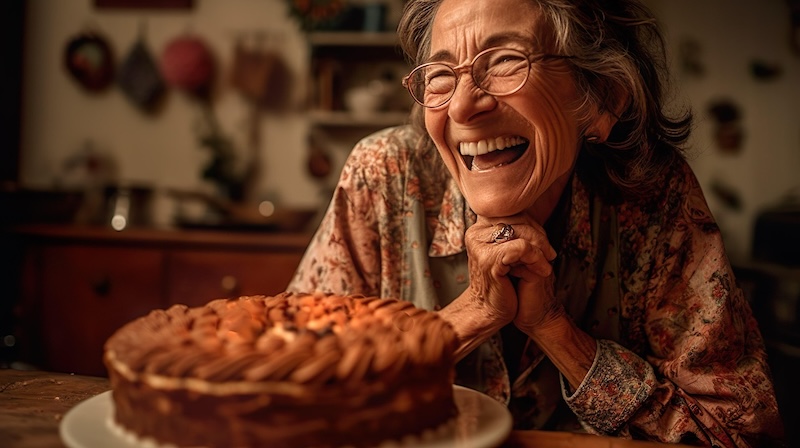Inside the Everyday World of a Home Carer – Hospitals and clinics often spring to mind, but rarely do we consider the quiet, dedicated work happening behind the doors of our own homes, thanks to our home carers. The unsung heroes of daily life, they help with the little practicalities of the day, offer companionship, reassurance, and dignity to those who need it most.
It’s a shame we tend to forget them, as the role of a home carer is quite demanding. As our population ages and more people choose to receive care in the comfort of their own homes, the demand for compassionate, skilled carers continues to grow. But what is life really like for a home carer? What does their daily routine look like? Once we peek into the challenges home carers face, we can begin to appreciate the incredible work they do.
The Role of a Home Carer
At its core, home care is about supporting individuals to live safely and independently in their own homes. But the responsibilities extend far beyond simple assistance. A home carer might help with personal care, including bathing, dressing, and grooming, administer medication, prepare meals, manage household tasks, and accompany clients to appointments.
Yet perhaps the most important part of their work isn’t the physical support they provide. It’s the emotional. Home carers are there for you. They provide companionship and support, listen to stories, offer comfort during difficult times, and help people maintain dignity when life feels too vulnerable. For many clients, their carer becomes a trusted presence, someone who makes their daily life not just manageable, but meaningful when meaning starts to slip away.
A Day in the Life
A typical day for a home carer begins early. The morning starts with waking clients, helping them get dressed, preparing breakfast, and administering medications on time. But from then on, every client naturally has different needs, so a carer must know how to adapt quickly. Some clients may require assistance with limited mobility, others need specialist support for memory challenges like dementia.
Come afternoon, it’s time for some household tasks, errands, and accompanying clients to medical appointments. But it’s also about the little things that make life feel normal, like reading a newspaper together, tending a garden, or simply offering a reassuring presence. Even when physical tasks are complete, a home carer’s role often extends to emotional support, including checking in on a client’s mood and wellbeing.
Evenings bring their own rhythm. Home carers will prepare dinner, help with evening routines, and assist with unwinding after a busy day. Many carers also keep detailed records, noting changes in health, behaviour, or mobility that are crucial for ongoing care planning and monitoring symptoms.
In the end, It’s a role that requires a lot of attentiveness, patience, and the ability to anticipate needs before they become urgent.
Emotional and Physical Challenges
The job of a home carer is very physically demanding and quite emotionally taxing. Imagine the long hours on your feet, lifting and assisting clients with mobility, and navigating the unpredictability of each day. It’s simply exhausting.
But perhaps the greater challenge lies in the emotional labour, which tends to be underestimated. Carers do form deep bonds with their clients, sharing moments of joy and difficulty alike. When you support someone through illness, loss of independence, or the final stages of life, you’re required to show and maintain immense emotional strength and resilience.
So, burnout is more than a real risk in this profession. Many carers often report feelings of stress, isolation, or emotional fatigue. Yet despite these challenges, the majority stay in the field because of the profound satisfaction that comes from making a tangible difference in someone’s life.
Skills and Qualities That Make a Great Home Carer
A great home carer has both a combination of technical skills and emotional intelligence. On the practical side, carers need knowledge of medication administration, basic health care, nutrition, and first aid. But they also require excellent organisational skills to manage schedules, appointments, and care plans.
Equally important are soft skills, of course. Patience, empathy, adaptability, and strong communication skills are a must. A good carer has to be able to read unspoken cues, anticipate needs, and provide reassurance without being overbearing. Such qualities are too often undervalued, but they actually are what make the difference between simply performing a task and truly enriching a client’s life.
Industry Insights and Trends
The home care sector evolves rapidly. It has to. The population is ageing, particularly in the UK and Europe. Technology is also beginning to play a role. Now, digital monitoring devices and apps can help manage medication schedules and facilitate smooth communication with healthcare providers.
Yet despite the growing importance of the role, home care is often one of the most underappreciated jobs. Pay rates can be modest, and career progression is not always straightforward. Organisations like SweetTree Home Care Services are working to change that by providing training, support, and recognition for carers. Because they understand that carers have to feel valued and equipped to meet the diverse needs of their clients in order to excel in their job.
Common Misconceptions About Home Care
There are many myths about home care, with the most notable one being that it’s “just cleaning” or “easy work.” The reality is quite different. Such a profession demands skill, patience, and emotional fortitude. A home carer becomes the lifeline that enables clients to maintain their independence and quality of life. Literally supporting them to feel like individuals, like humans, when life is too much.
The Quiet Strength of Carers
Home carers occupy a vital place in society. They bridge the gap between healthcare and daily life, offering clients the luxury to feel human when it matters most. It is a demanding and oftentimes invisible work, but it’s also profoundly meaningful.
So, next time you think about the healthcare system, remember the carers who quietly make life easier, safer, and more compassionate, one home at a time.
Poppy Watt


